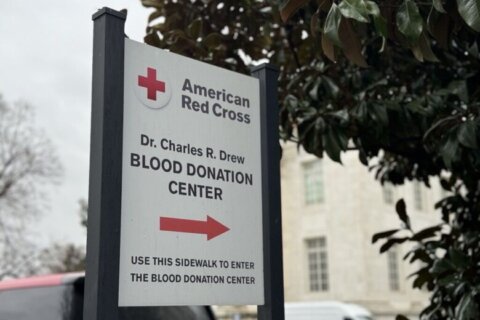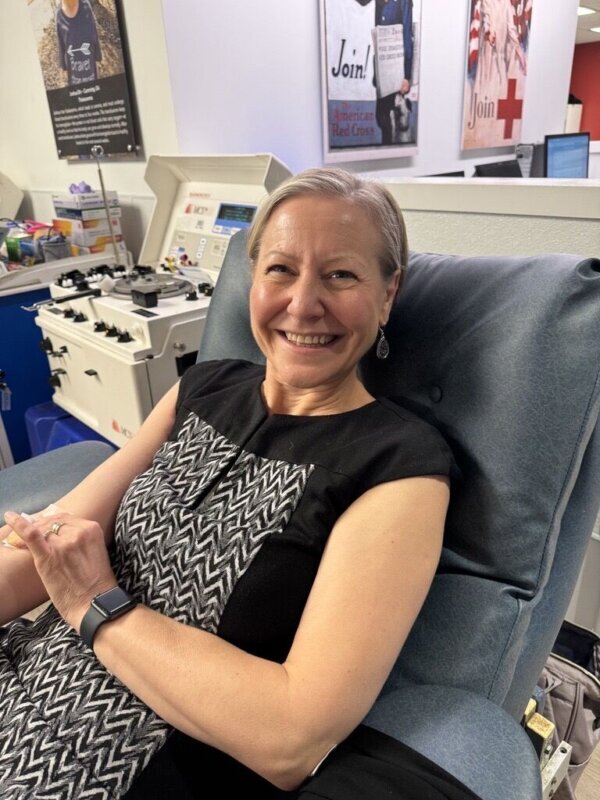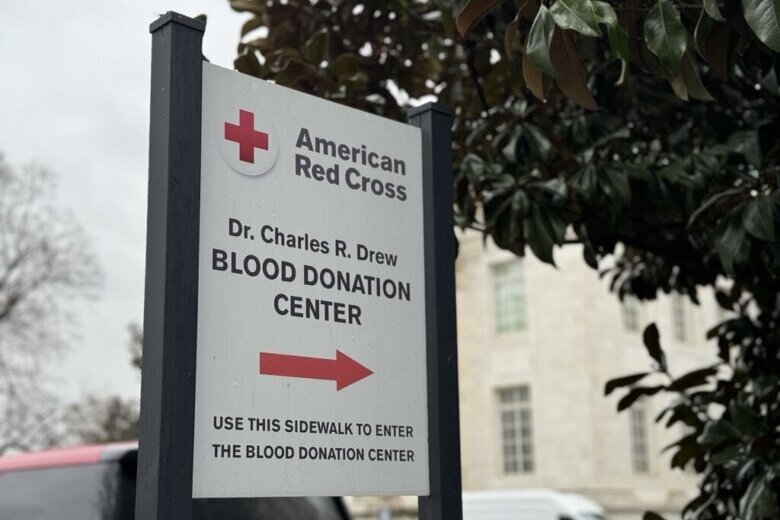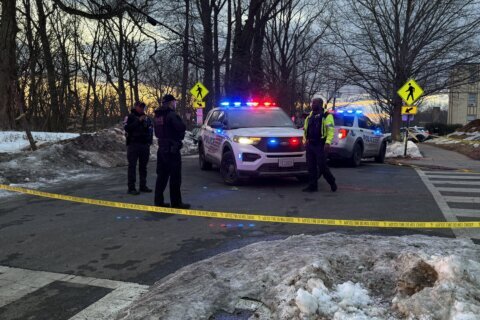
Within weeks, paramedics with D.C. Fire and EMS will be able to perform blood transfusions at trauma scenes, a move that officials said will improve the possible outcomes for patients suffering from severe blood loss.
Dr. David Vitberg, assistant medical director with D.C. Fire and EMS, said during a Thursday news conference that the mortality rate for trauma patients suffering from hemorrhagic shock or severe bleeding is high, about 20%.
“Reducing death from hemorrhage is an area where we have the potential to make a profoundly positive impact on patient outcomes in the District,” he said.
D.C. Mayor Muriel Bowser said the new program, a partnership involving D.C. Fire and EMS, George Washington University Hospital and the American Red Cross, “will allow our paramedics to deliver blood on site so that they can start lifesaving transfusions in the ambulance when they reach the patient.”
D.C. Fire Chief John Donnelly said his agency has tracked the progress of similar programs across the country, including in Loudoun County, Virginia.
“We’ve watched what they’ve done, we’ve learned from them, and I think we’re ready to bring this high level of care to our patients,” Donnelly said.
Vitberg said through the program, George Washington University Hospital’s blood bank will make blood collected and supplied by the American Red Cross available to D.C. Fire and EMS in carefully controlled facilities.
EMS supervisors who have received specialized training are “designated as our EMS transfusionists,” Vitberg said, adding that at first, the program will roll out in just a few spaces. That’s because the blood needed for the program is in very short supply.
“It’s logistically and completely impractical to put units of blood on every ambulance and every supervisor vehicle,” Vitberg said.
Although the program is using just four EMS Supervisor vehicles, Vitberg said “we can, with any of those vehicles and any of those personnel, reach any corner of the District for any patient that needs blood.”
Dr. Emily Coberly with the American Red Cross said when a trauma patient experiences blood loss, “patients lose not just their red blood cells, which are transporting oxygen to their body, they’re also losing plasma that contains clotting factors and their platelets, which help their blood to clot.”
She said all blood types are in demand, but in handling trauma cases, Type O is most useful.
“Type O red blood cells are known as the universal donor because they can be given to patients of all blood types safely,” Coberly said.
In January, the American Red Cross announced there’s a nationwide blood shortage, and has urged the public to consider donating blood. At Thursday’s news conference announcing the D.C. Fire and EMS Whole Blood Program, Bowser told attendees, “I encourage everyone who’s comfortable doing so, to donate blood.”
‘But I’m a fainter!’
There’s a critical need for blood across the country, and the American Red Cross has been appealing to potential donors in various ways, even including a chance at winning a trip for two to the Super Bowl for those who donate in January.
But that’s not what prompted people who talked to WTOP as they gave blood at the Dr. Charles Drew Blood Donation Center at the American Red Cross headquarters in D.C.
Marta Wosinska, from Chevy Chase, said she had long wanted to donate blood, but because she had previously lived in Europe, she was ineligible. The Food and Drug Administration had barred blood donations from anyone who had lived or traveled in certain parts of Europe due to concerns over Creutzfeldt-Jakob disease, related to mad cow disease.

As soon as the ban was lifted, “I decided to come down here today to donate blood. This is my first time,” Wosinska told WTOP.
“The amount of blood I have given … it’s not a problem.”
Ellen Stroud, from Arlington, Virginia, said she’s a regular donor.
“This is my third time donating, and so, now the Red Cross sends me the emails when it’s time,” she said. “I also have other friends who work in health care” who told her of the critical need for blood donations.
Stroud says she’s “seen the impact” blood donations can have in saving lives due to her previous work inside an emergency room.
So even if donating blood leaves you feeling a little woozy, “Your day is much better than somebody else’s who is depending on that blood for their health and for their survival,” she said.
Stroud sat at a table where snacks were provided for volunteers after they gave blood. As she talked to WTOP, Donnelly looked at the snacks offered.
He nodded as Stroud spoke, and said he’s one of those people who feels the effects of donating blood.
“Oh, I’m a fainter,” the fire chief said with a smile. “I’m pre-loading so I don’t!”
Despite the immediate aftereffects of donating, Donnelly said he’s donating because it’s essential, adding that first responders need blood to help people.
“It’s a little scary when you hear that our blood supply is less than five days,” the fire chief said of the current blood shortage. “We need more blood.”
Get breaking news and daily headlines delivered to your email inbox by signing up here.
© 2024 WTOP. All Rights Reserved. This website is not intended for users located within the European Economic Area.









